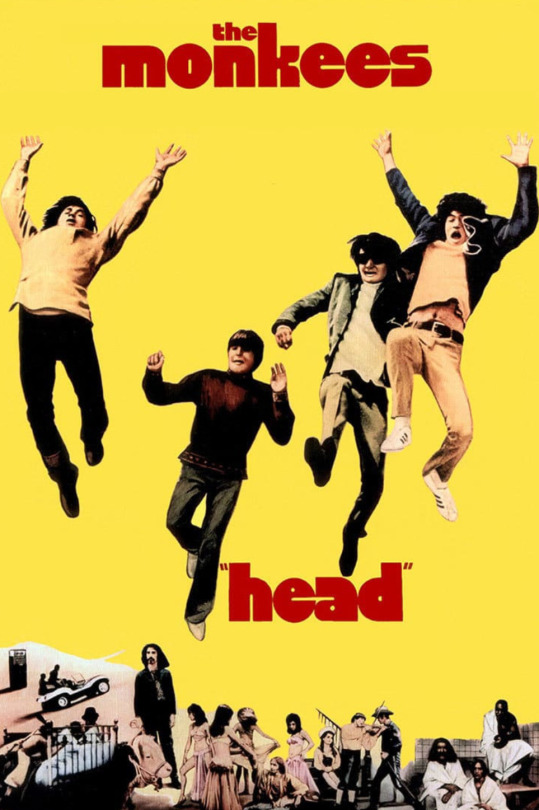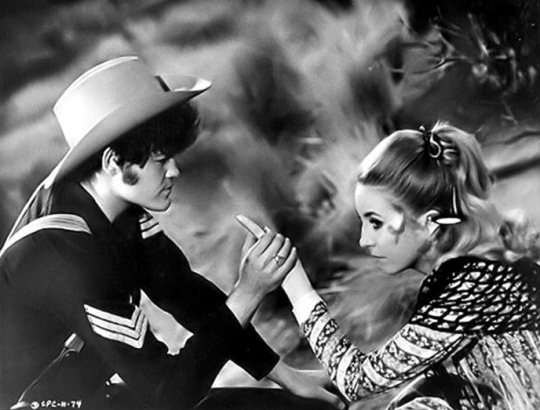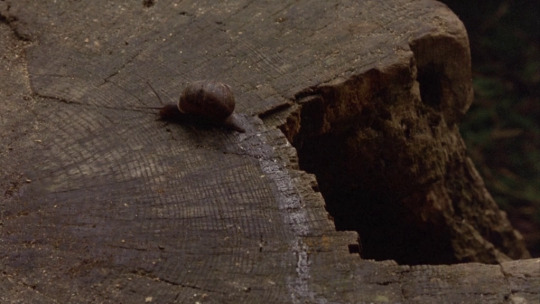#Bob Rafelson
Explore tagged Tumblr posts
Text

#movies#polls#head#head 1968#head movie#60s movies#bob rafelson#peter tork#davy jones#micky dolenz#michael nesmith#annette funicello#the monkees#requested#have you seen this movie poll
403 notes
·
View notes
Text




Behind the scenes during the filming of Head, 1968.
“The first thing I heard was Mike, ‘All I can say is, “Man, am I in pain!”’ And you could that he was, so the director yelled, ‘OK bring ‘em down and let’s see if we can adjust those things.’‘Those things’ were harnessed attached around their waists to enable them to seemingly fly through the air. […] ‘Shoot’ yelled the director and Mike, Micky and Peter began flailing while two men shoved the huge hose down past them in a gigantic rush of noise. ‘Wow, was that wild’ exclaimed Micky. ‘Well, it scared the #%&$# out of me,’ groaned Mike. I have to admit the whole thing was rather frightening, but the director seemed intent on making the guys do it themselves rather than using stand-ins. All four of them do almost all of their own stunt work in the movie. […] I kept watching Mike, wondering how much more he’d be able to take, until finally they let him down for a few minutes rest. Peter and Micky seemed OK; but Mike looked like he felt awful. […] Mike picks up a large cigarette butt and says ‘Well, it’s not one of your standard brands.’ This line turned out to be quite a problem as they argue over how to deliver the line — should it be obvious what they are talking about or subtle. Mike wanted to do it like W.C. Fields, one of the all time great comedians and one of Mike’s idols, would have done it, but he and the director couldn’t seem to agree. At one point, Peter seemed about to reach the breaking point of his patience, when he suddenly walked to the end of the set, stomped up and down once, shouted, took a deep breath, turned and said ‘OK, I’m ready.’I learned later that Peter was actually feeling quite bad also. A week earlier he had had an abscessed tooth, which had swollen up one whole side of his face and they hadn’t had time for him to take a week off and wait for it to go back down, so he’d had the infected tooth removed without missing a day of work. On top of this, he felt a cold coming on and was stuffing down cold tablets all day. Micky’s only problem seemed to be an insatiable hunger.” - Carol Deck, Flip, August 1968 “[In the vacuum bag] Michael finds […] the butt end of a marijuana cigarette. He wanted to say, ‘Oh, look, a marijuana cigarette.’ Bob [Rafelson] said, ‘No, no, it’s gotta be El Zoomo.’ Which is what happens [in the Final Cut of Head]. Micky pokes the thing and says, ‘El Zoomo.’ We thought saying, ‘Oh, look, a marijuana cigarette,’ was far and away hipper. Bob was concerned just saying marijuana on a movie was enough to get us in trouble. We actually went off to cool our heels. We were three or four hours screwing our minds around to going with what he said. ‘And if you don’t like it, get off my set’: another example of Bob’s exquisite delicacy with his actors and his extraordinary human relations skills.” - Peter Tork, Shindig Magazine, 2010
#Peter Tork#Micky Dolenz#Michael Nesmith#Tork quotes#60s Tork#The Monkees#Monkees#Head (1968)#Peter and Michael#Peter and Micky#Carol Deck#Bob Rafelson#can you queue it
68 notes
·
View notes
Text





The Postman Always Rings Twice (1981) | Dir. Bob Rafelson
#The Postman Always Rings Twice#The Postman Always Rings Twice 1981#Bob Rafelson#Jessica Lange#Jack Nicholson#Film#Movies#Gifs#anitaoriginal
41 notes
·
View notes
Text

Annette Funicello-Davy Jones "Cabeza" (Head) 1968, de Bob Rafelson.
36 notes
·
View notes
Text
Five Easy Pieces (1970), dir. Bob Rafelson
23 notes
·
View notes
Text

Davy Jones, December 30, 1945 – February 29, 2012.
With Bob Rafelson.
145 notes
·
View notes
Text
Recently Viewed: Head

Star vehicles for musicians are hardly a rarity in Hollywood—after all, creatively bankrupt studio executives are perfectly willing to exploit pretty much any intellectual property that might be marketable, artistic integrity be damned—but even within that niche genre, Head stands out. Whereas A Hard Day’s Night (The Beatles) and True Stories (Talking Heads frontman David Byrne) are ultimately sincere and earnest despite their surface-level whimsy, the motion picture “adaptation”—more like antithesis!—of popular sitcom The Monkees is deeply cynical beneath its absurdist humor and psychedelic visuals, mercilessly deconstructing the superficiality of the entertainment industry, the elusive (and illusive) nature of the American Dream, and the manufactured public image of the band around which it revolves (exemplified by such sanitized, inoffensive lyrics as, “We’re too busy singing to put anybody down”).
The satire is as caustic as it is deliberately unsubtle. In an early scene, Micky Dolenz stumbles across a Coca-Cola vending machine in the middle of a barren desert—a condemnation of rampant commercialism and mindless consumerism that is subsequently reinforced by a rapidly edited montage of roadside billboard advertisements. Later, Peter Tork briefly breaks character mid-take to fret about how slapping a woman, even within the context of his work as an actor, might damage his reputation (“The kids won’t dig it, man!” he complains to the indifferent director)—lampooning the inherent egotism of celebrity. In the movie’s most scathing sequence, a concert is intercut with archival footage of the Vietnam War; as the performance ends, the frenzied audience storms the stage and literally tears the group apart—exposing them as nothing more than hollow mannequins. The medium itself can barely contain the filmmakers’ moral outrage: metafictional conflicts frequently disrupt the narrative; flashbacks within interludes within digressions overlap and interweave, making the “plot” borderline indecipherable. It can only be summarized in terms of its individual episodes and the loose thematic associations between them—which is akin to trying to explain a fever dream (or a drug-induced hallucination) to your pet cat.

Featuring cameo appearances by Jack Nicholson, Frank Zappa, and Timothy Carey and punctuated by stylistic flourishes that anticipate such cinematic classics as Raging Bull and Skyfall (no, seriously), Head is a fascinating countercultural artifact. Even amongst its New Wave contemporaries, it remains defiantly unconventional, incomprehensible, and unclassifiable; it must be experienced firsthand to be properly understood—though your mileage may vary in that regard.
#Head#Bob Rafelson#Jack Nicholson#The Monkees#Monkees#Davy Jones#Peter Tork#Micky Dolenz#Michael Nesmith#Frank Zappa#Criterion Collection#film#writing#movie review
51 notes
·
View notes
Text
New transcript of a phone call from Head (1968) pre-production discovered!
“Hi Mike, Micky, Davy, and Peter! It’s Bert and Bob here. We’ve finally decided on a plot for the new Monkee movie! It’ll be about the psychological torture. Hugs and kisses!”
#the monkees#michael nesmith#mike nesmith#peter tork#Davy jones#David jones#micky dolenz#bob rafelson#Bert Schneider#jack nicholson#head 1968#head (1968)
53 notes
·
View notes
Text

#jack nicholson#karen black#susan anspach#adiren joyce#bob rafelson#richard wechsler#movie#bert schnieder#movies#movie poster#movie posters#film#films#cinema#70s#1970s#five easy pieces
32 notes
·
View notes
Text

Five Easy Pieces (Bob Rafelson, 1970)
36 notes
·
View notes
Text
Granted, the lyrics are a bit dated though still fun to hear.
The best part of this song is Michael Nesmith's awesome and rhythmic guitar. His guitar work is underrated to be sure.
From the 1968 movie soundtrack "Head". With cameos by Frank Zappa, Teri Garr, Jack Nicholson, Sonny Liston and Victor Mature.
In brief non-speaking parts, Dennis Hopper and film choreographer Toni Basil.
Produced and written by director Bob Rafelson and Jack Nicholson.
#the monkees#michael nesmith#frank zappa#teri garr#jack nicholson#sonny liston#victor mature#dennis hopper#toni basil#bob rafelson#Spotify
6 notes
·
View notes
Text


Peter Tork with Bob Rafelson, May 1968. Photos by Henry Diltz.
From Peter's Q&A at the 2006 United Fan Convention. “When I recorded ‘Can You Dig It,’ the guitar solo originally ran about three or four minutes all by itself. We cut that back to a minute and a half. Bob Rafelson took a pair of scissors and snipped off the end of it. He didn’t ask me to shorten it, which I would have been glad to do. He just chopped it off. Son of a bitch! I have a lot of gripes about that, but that’s neither here nor there.” - Peter Tork, Blitz!, May/June 1980 “[M]y personal belief is that Bob [Rafelson] is an evil-minded man. He likes to bring people down. Bob was often unsupportive as a human being and distinctly negative — and I was on the short end of that. There’s one example [in the film] — where Ray Nitschke, the football player, keeps hitting me. He was a Hall of Famer for the Green Bay Packers. He’s doing his best to hit me but not to give it all he’s got because if he does, I’m a squashed bug. So this guy’s one of the toughest men in football, he’s coming at me and I’m scared [but] figure it’s good to be scared because that’s what an actor should do. But Bob goes: ‘Ha, ha! Look at Peter! He’s scared! Ha, ha!’ I was just about the kick him in the balls. It was like, For fuck’s sake, Rafelson! You’re making fun of me ‘cos I’m scared? How do you think that’s going to affect the quality of your movie, pal? I was so angry! That’s the style in which he damaged what could have been a fulfilling quality experience.” - Peter Tork, MOJO, June 2002 “I didn’t have much to do with Kirshner and that which I did have to do with him was strained, difficult and incomprehensible. Schneider I love; he’s a hero of mine. Rafelson, the less said about, the better.” - Peter Tork, Goldmine, May 1982 “There was one guy, Steve [Stills], whom I liked enormously. Unfortunately he wasn’t quite right, but he had musical intelligence and I went so far as to ring him up and ask him along again. When he realized he wasn’t going to make it he suggested I get in touch with someone he knew, a certain Peter Thorkelson. I might have said ‘Yeah’ and forgotten about it — particularly as this Peter Thorkelson hadn’t even answered the ad and we had a lot of guys who had. Yet I remember I went to great lengths to contact him. I found him working as a dishwasher — not even as a musician, so you can imagine it took a while tracing him. But when I heard him, I knew at once he was right. I was knocked out.” - Bob Rafelson, NME, August 12, 1967 “The movie portrays them with not so much sweetness and brightness [as the TV show]. It’s a much heavier and far-out thinking group. I wouldn’t call it uncharitable. I thought it was expanding my sense of who they were. There’s a boxing scene in which Micky says, ‘Take this, you dummy.’ Suddenly the music changes and Peter appears in the corner, Christ-like, and says, ‘Micky, I’m the dummy. I’m always the dummy.’ The point was that he was always asked to be the dummy, so here he’s acknowledging it. But he’s also the one who’s given the longest speech in the movie about spiritual evolution, which he’s learned from the guru in the steam room. I was trying to give him a chance to be himself, but in a symbolic way. He is that way today, by the way. In other words, The Monkees became what they really were.” - Bob Rafelson, MOJO, June 2002 “Working for Bob was tough.” - Peter Tork, Shindig Magazine, 2010 “‘Most people are dazzled by the psychedelia, and that’s fine, but for me finally the point of the movie is the Monkees never get out,’ Tork says sadly. ‘Which is to say Bob Rafelson’s view of life is you never get out of the black box you’re in. There’s no escape.’ So how would a Peter Tork cut of Head end? ‘There might have been a scene where we get out,’ he says wistfully. ‘We jump in the water and get away.’“ - The Guardian, April 28, 2011
#Peter Tork#Bob Rafelson#Tork quotes#60s Tork#00s Tork#10s Tork#The Monkees#Monkees#Head (1968)#long read#can you queue it
67 notes
·
View notes
Text




The Postman Always Rings Twice (1981) | Dir. Bob Rafelson
#The Postman Always Rings Twice#The Postman Always Rings Twice 1981#Bob Rafelson#Jessica Lange#Jack Nicholson#Film#Movies#Gifs#anitaoriginal
32 notes
·
View notes
Text

Micky Dolenz-Teri Garr "Cabeza" (Head) 1968, de Bob Rafelson.
47 notes
·
View notes



